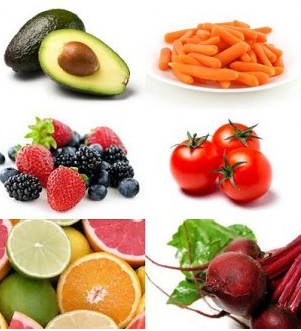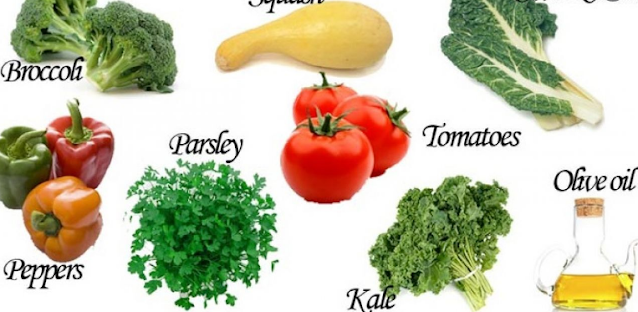The most important vitamins for skin care
If the skin gets all vitamins that it needs, this will help it to
maintain its healthy appearance, youth, and freshness, and it also reduces the appearance of dark spots,
redness, wrinkles, and excessive dryness.
The skin usually obtains these vitamins from food, nutritional
supplements (should be under the supervision of the doctor), as well as cosmetic
creams.
Below we will know about the essential vitamins to maintain beauty,
youth and freshness of our skin.
Skincare daily is essential to maintain elegance and excellence,
therefore,
we must ensure that the skin receives the necessary vitamins during the daily
care routine.
What are the most important vitamins for healthy skin?
The most important vitamins for the skin you must make sure of their presence:
1- Vitamin A
2- Vitamin B
3- Vitamin C
4- Vitamin D
5- Vitamin E
6- Vitamin K
1- Vitamin A:
Vitamin A contributes to controlling melanin pigment, which contributes to giving the skin its color, and it also helps stimulate the production of new
skin cells.
Vitamin A contributes to the rapid replacement of sun-exposed skin cells
that suffer from tanning with new, whiter cells.
Also, vitamin A is among the most effective vitamins for acne treatment
and skincare.
Over 700 studies showing vitamin A make skin more healthy and youthful.
Where do we get vitamin A?
Dark green or yellow vegetables and fruits (such as broccoli, spinach,
sweet potatoes, cantaloupe, carrots, and apricots), it is also available in
milk, cheese, and eggs.
2-Vitamin B:
Vitamin B is not just a single vitamin; it is a complex of 8 vitamins,
and
they are (B1- B2- B3- B5- B6- B7- B9- B12), and vitamins B good for skin
include B1, B2, B3, B5, B6, B7, and B9 each of which works to achieve a
specific benefit for the skin.
VitaminB1:
Vitamin B1 eliminates free radicals and toxins on the skin, improving blood
circulation process.
VitaminB2:
Vitamin B2 promotes the development and growth of cells, maintaining
skin looking younger longer.
VitaminB3:
Vitamin B3 enhances moisture on your skin and also lightens skin by
enhances immune function, improves blood circulation.
also protecting the skin by enhancing the production of ceramide and fatty
acid which contribute to protecting the skin.
It is very important especially for dry and sensitive skin; because it prevents
the movement of oil in the skin cells, limiting the pigmentation on your skin.
VitaminB5:
vitamin B5 is very useful to heal wounds, especially minor wounds and
minor burns.
VitaminB6:
Regulates sebum secretion of the skin, and lack of vitamin B6 causes dermatitis.
VitaminB7:
It is important for healthy skin; the deficiency of vitamin B7 can cause
dry skin, dermatitis, and other skin problems.
VitaminB9:
Vitamin B9 is involved in the formation of skin cells and the lack of it
will cause skin problems.
VitaminB12:
B12 boosts the radiance of dull and mature skin.
Where do we get vitamin B?
We find B vitamins in meat (especially liver), seafood, poultry, eggs,
dairy products, legumes, leafy greens, seeds, and fortified foods, such as
breakfast cereal and nutritional yeast
3-Vitamin D:
Vitamin D is considered as one of the best vitamins for the skin, it reduces
dark spots and redness marks, especially for those who suffer from psoriasis; it
also protects against excessive dryness, so it is difficult to find a skincare
product that is free of vitamin D.
Helps in the formation of new healthy cells, including skin cells, and
also contributes to maintaining skin tone.
Where do we get vitamin D?
Vitamin D is available through exposure to sunlight 15 minutes a day.
To avoid sun damage and ultraviolet rays, just avoid the peak time from
10 am to 4 pm, to, and it can also be obtained by eating many foods, including
:
-oily fish – such as salmon, sardines, herring, and mackerel
-red meat
-liver
-egg yolks
-fortified foods – such as some fat spreads and breakfast cereals.
4-Vitamin C:
It has antioxidant and collagen-stimulating properties, therefore we
find it included in the composition of many anti-wrinkle skin care products.
It reduces cell damage and helps activate the
mechanism of their renewal.
It provides protection from skin dryness and
delays the appearance of signs of aging on the skin, as it helps in the
production of collagen, which is necessary for the health and youth of cells.
Where do we get vitamin C?
Citrus fruits are an essential source of vitamin C, and we also find it
in strawberries, broccoli, and spinach.
5- Vitamin E:
Vitamin E is essential for the growth of healthy skin tissue and prevents
the accumulation of excess fat on the skin.
vitamin E retains the skin moisturizing which helps to reduce the dryness of the skin.
Where do we get vitamin E?
already vitamin E is manufacturing by the body.
We find also vitamin E in plant-based oils, nuts, seeds, fruits, and
vegetables.
-Wheat germ oil
-Sunflower, safflower, and soybean oil
-Sunflower seeds
-Almonds
-Peanuts, peanut butter
-Beet greens, collard greens, spinach
-Pumpkin
-Red bell pepper
-Asparagus
-Mango
-Avocado
Skincare experts recommend using creams containing vitamin C and
vitamin E at the same time because they are more beneficial in protecting the
skin than products that contain one of these two vitamins without the other.
6-Vitamin K:
Its role is effective in treating cracks, inflammation of the veins,
scars, brown spots, and dark circles surrounding the eyes.
For its importance we find most of the under eye creams contain vitamin
K as the basic component.
Where do we get vitamin K?
We find vitamin K in:
-green leafy vegetables – such as broccoli and spinach
-vegetable oils
-cereal grains
-Small amounts can also be found in meat and dairy foods.
The bottom line:
Healthy skin needs us to provide it with all the necessary elements
and avoid all that may harm it.
-A healthy,
balanced diet is essential to get all the nutrients and vitamins needed for the
skin.
-Avoid exposure
to the sun for long periods of time, especially in the summer, and Exposure to
the sun for 15 minutes a day is necessary to obtain vitamin D, and the preferred time is either hours of sunrise or sunset.
-It is preferable and recommended to use high-quality
and reliable sunscreens and moisturizing products, under the supervision of a
doctor.
-It is
preferable to obtain nutrients and vitamins from food, but you must obtain
permission from your doctor when necessary to use nutritional supplements.
-Drinking enough water daily is a very important thing to maintain healthy skin.
-
Sources: vkool.com /
webmd.com / healthline.com / aveeno.com / hsph.harvard.edu / nhs.uk.

















0 comments:
Post a Comment